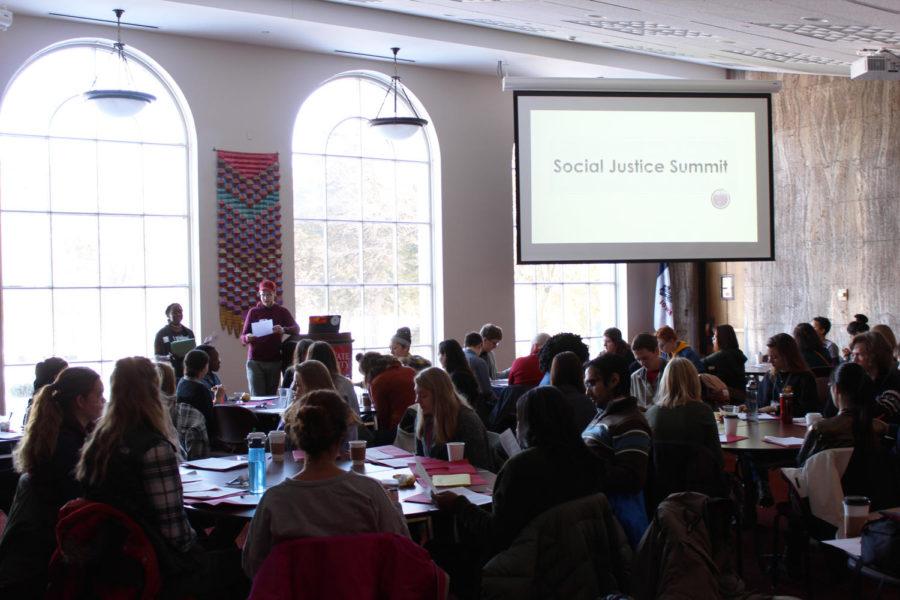The Social Justice Summit motivates students to be agents of change
The Social Justice Summit takes place Feb. 25, 2017, at the Memorial Union.
February 24, 2019
Students gathered at the eighth annual Social Justice Summit in hopes of a common result — to change the world. The work starts at Iowa State.
Paloma Mate-Kodjo, a senior majoring in biology (AGLS), said she attended the summit to educate herself.
“I always like seeking out opportunities where I can have this conversation about social justice to just not only learn more but to see different ways in which I can be an activist,” Mate-Kodjo said.
One main purpose of the summit was to provide students with the tools they need to be aware of issues involving inclusion.
“I think Iowa State is doing what they can but there’s always more to be done,” said Sarah Kaden, graduate assistant-administrative who planned the summit.
According to their program, students listened to breakout speakers who discussed topics including intersectionality, micro-aggressions and dealing with difference. They also discussed ways in which they can be advocates for inclusivity.
Part of this, Kaden explained, was developing action plans that will guide them in being agents of change, although students expressed the importance of simply being open to everyone’s thoughts and ideas.
“You must be willing to listen to why people are advocating for things that they are because obviously if people are saying things, then it’s an issue,” said Lynette Kwaw-Mensah, a junior in sociology. “And understand that not everyone’s lives mimic your own.”
Through speakers and open conversation, the Social Justice Summit provided tools for students to combat non-inclusive culture whenever and wherever they may encounter it. Because of this, they are better able to be agents of change on Iowa State’s campus and in the world.
“You must be willing to challenge and question things that you’ve learned, and to relearn things because we’ve all been socialized differently,” Mate-Kodjo said.
















